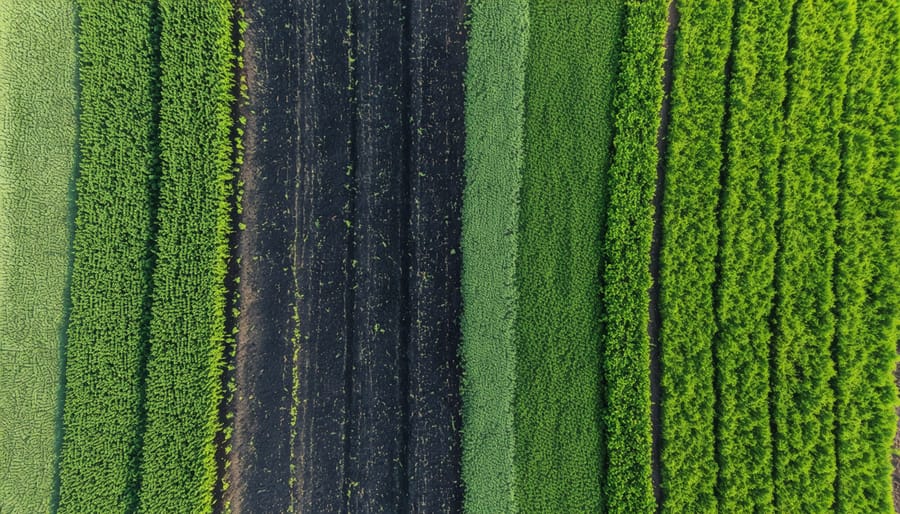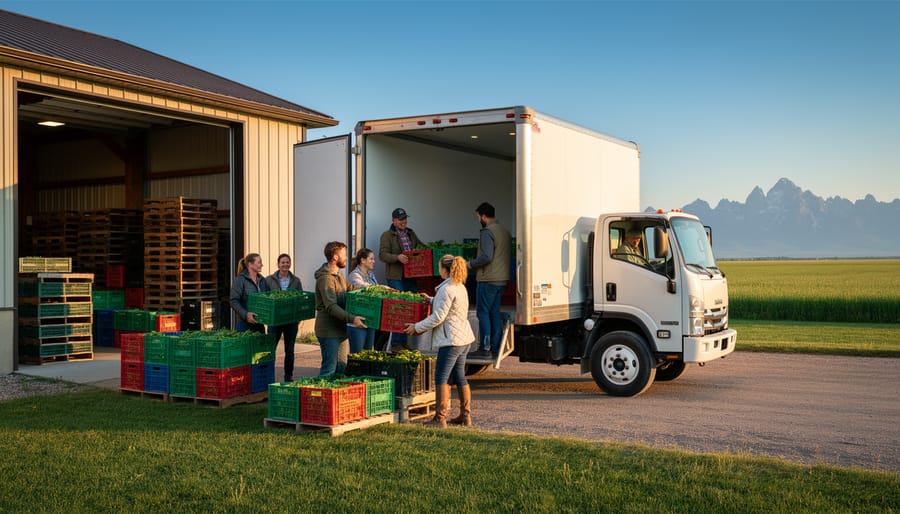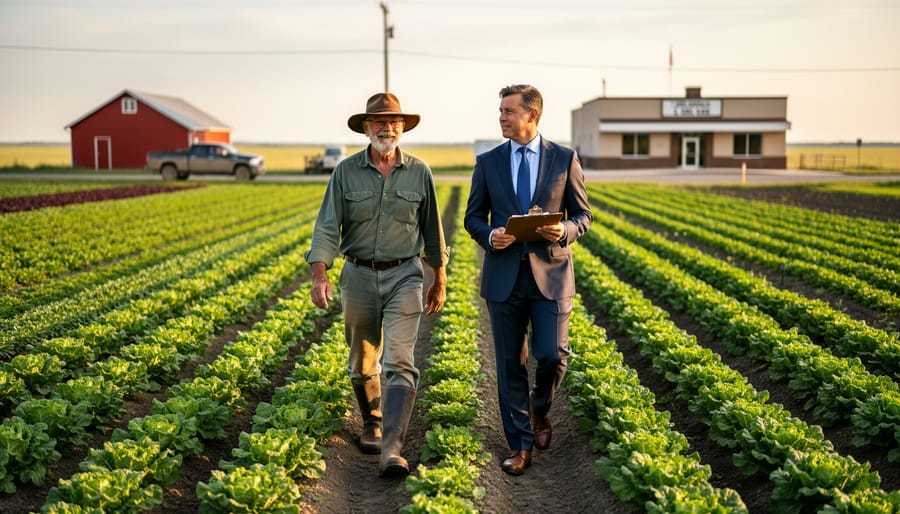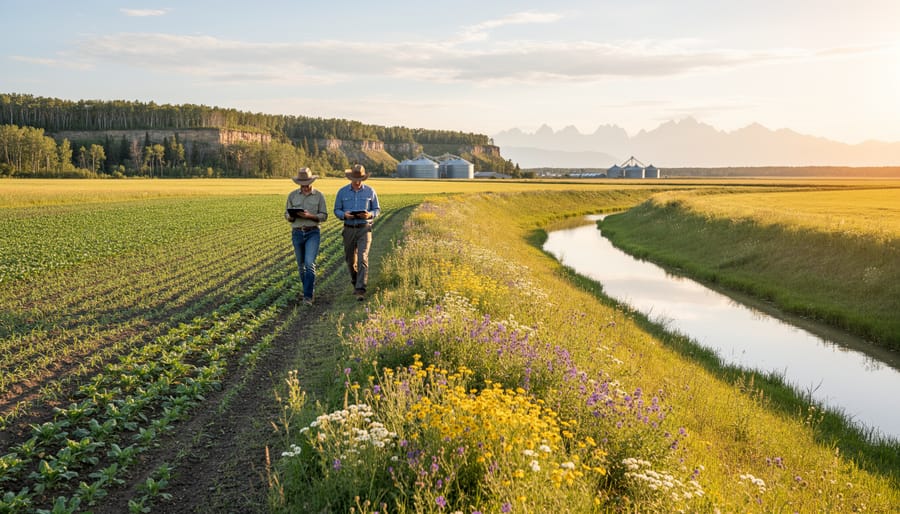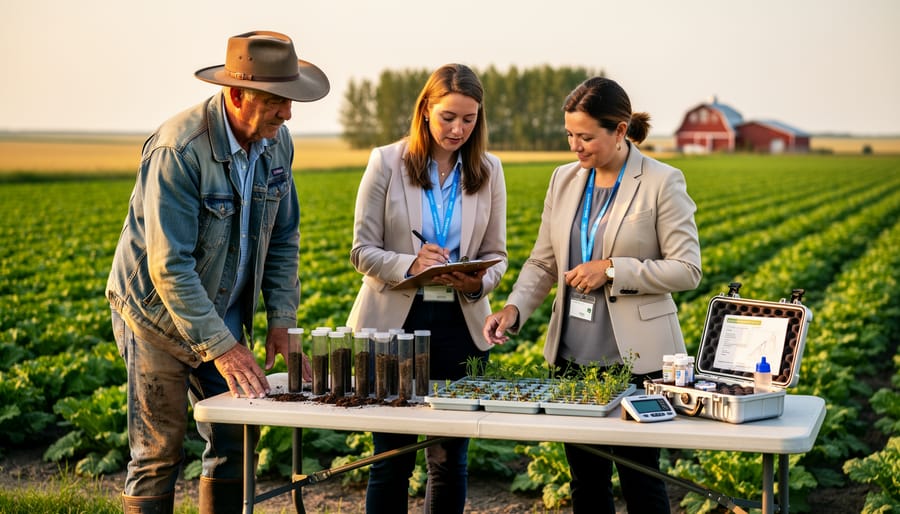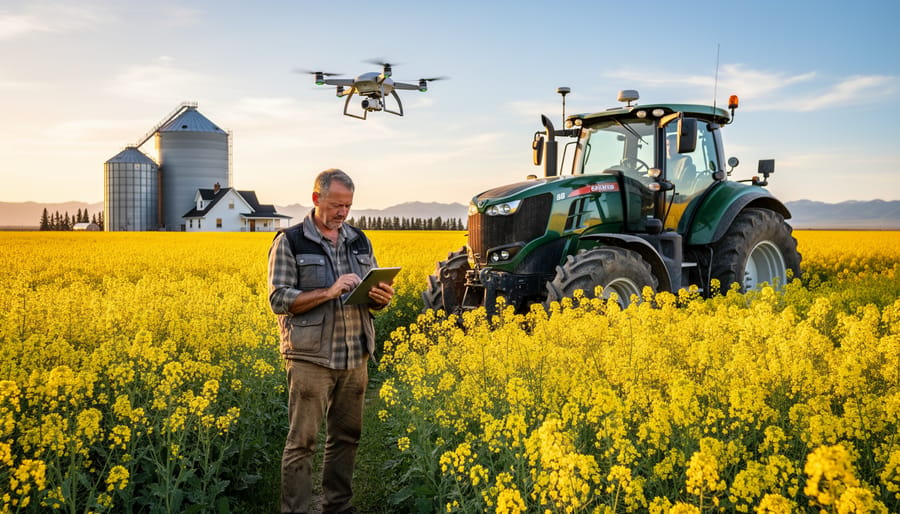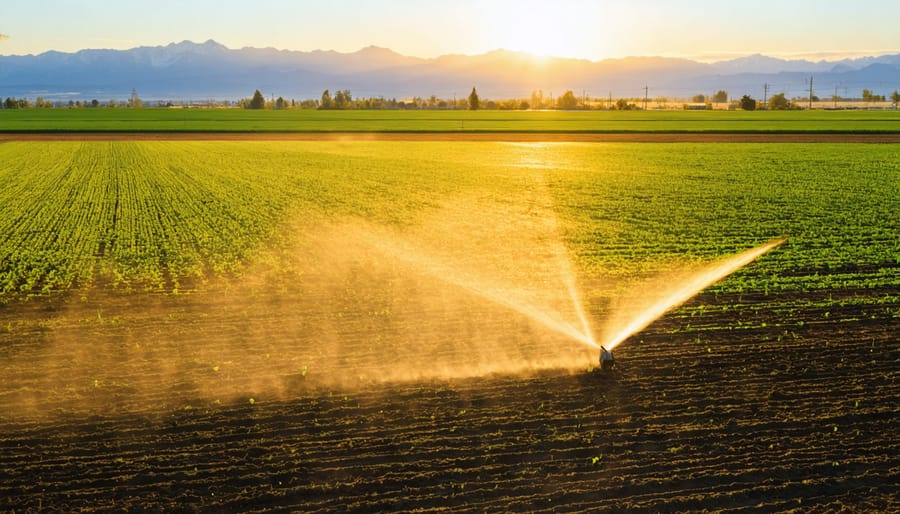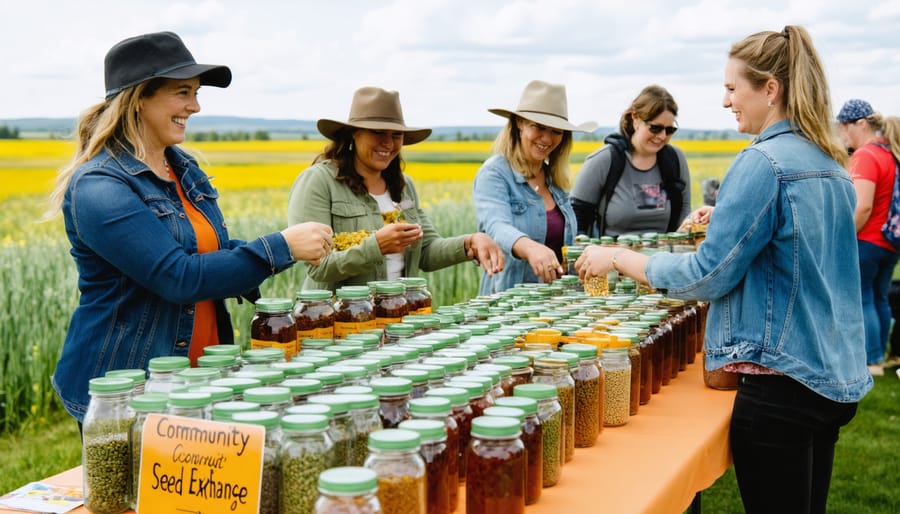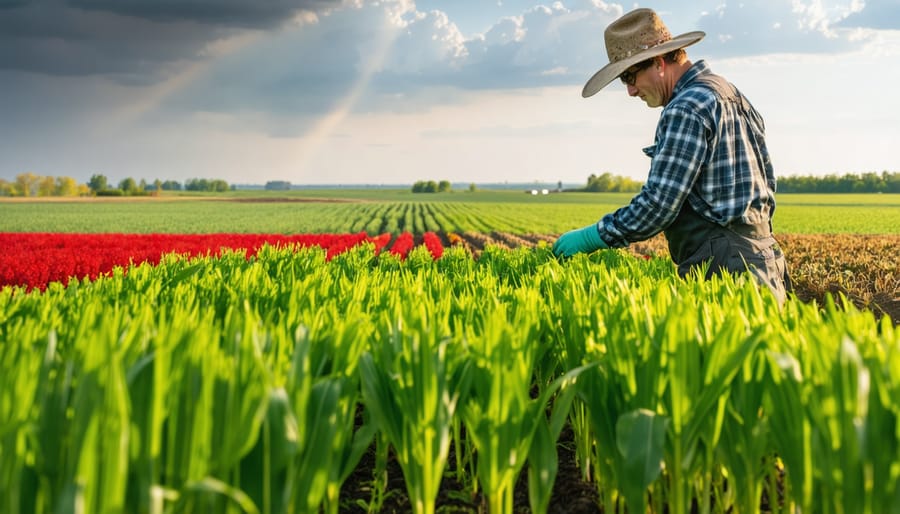Transform your farm’s organic transition journey with the innovative Bio-Geo transition method, Alberta’s groundbreaking approach to sustainable agriculture. This scientifically-backed program combines traditional farming wisdom with modern ecological practices, helping producers achieve organic certification while maintaining profitable operations.
Canadian farmers implementing GEO-Fresh Organic practices consistently report 30-40% higher soil organic matter within the first two years, alongside significant improvements in water retention and natural pest resistance. The program’s success stems from its uniquely Canadian perspective, developed specifically for our prairie growing conditions and validated through extensive field trials across Alberta’s diverse agricultural zones.
By integrating location-specific soil management strategies with precision farming techniques, GEO-Fresh Organic offers a practical pathway to organic certification without the typical yield declines during transition. Whether managing a multi-generation family farm or launching a new agricultural venture, this systematic approach provides the tools, support, and proven methodologies needed to succeed in today’s competitive organic market.
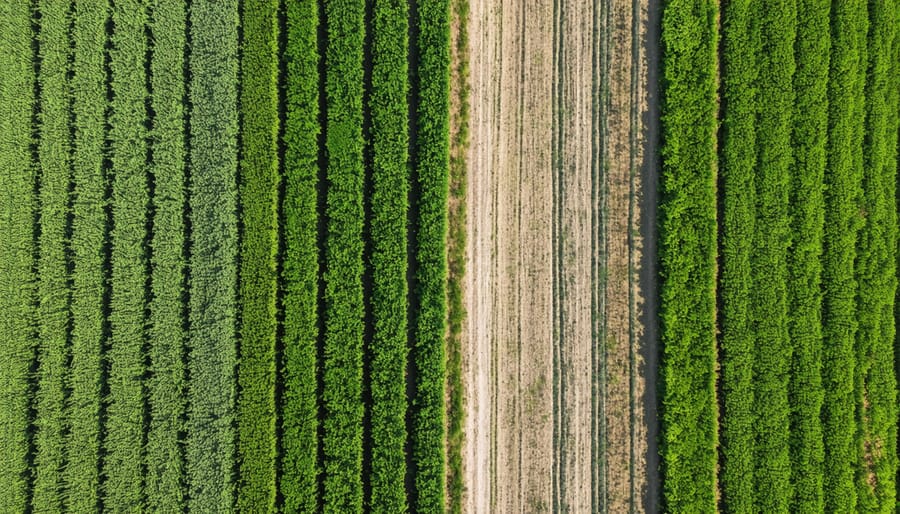
What Makes GEO Fresh Organic Different?
The Alberta Advantage
Alberta’s unique geographical and climatic conditions create exceptional opportunities for organic farming. Our province’s long summer days provide extended growing seasons, while our cold winters naturally reduce pest pressures, making organic cultivation more manageable. The clean air, pristine water sources, and vast stretches of fertile soil position Alberta farmers at a distinct advantage in organic production.
The provincial infrastructure further enhances these natural benefits. Alberta boasts extensive transportation networks, making it easier to reach both domestic and international markets. Our strong agricultural research institutions, including numerous field research stations, provide invaluable support for transitioning farmers.
Local market demand for organic products continues to grow, with Alberta consumers increasingly seeking locally-grown organic options. This regional preference, combined with established export channels to the United States and Asia, creates a robust market environment for Alberta organic producers.
Additionally, our strong farming community and mentorship networks offer invaluable support for new organic farmers. The presence of experienced organic producers throughout the province provides opportunities for knowledge sharing and collaborative problem-solving, making the transition to organic farming more achievable.
Environmental Impact Metrics
Our program’s environmental impact tracking reveals significant improvements across multiple sustainability indicators. Farms participating in the GEO-O Program have reported an average 30% reduction in synthetic input usage within the first year, contributing to the documented environmental benefits of organic farming. Soil organic matter content has increased by 2-4% on participating farms, enhancing water retention capacity and reducing irrigation needs by approximately 25%.
Carbon sequestration measurements show participating farms storing an additional 2-3 tonnes of carbon per hectare annually compared to conventional methods. Biodiversity assessments indicate a 40% increase in beneficial insect populations and the return of native bird species to converted organic fields.
Water quality testing near participating farms shows reduced chemical runoff, with phosphorus levels decreasing by 35% in nearby waterways. Energy consumption metrics demonstrate a 20% reduction in fossil fuel usage through improved soil management practices and reduced mechanical intervention requirements. These measurable outcomes validate the program’s effectiveness in promoting sustainable agricultural practices while maintaining productive farming operations.
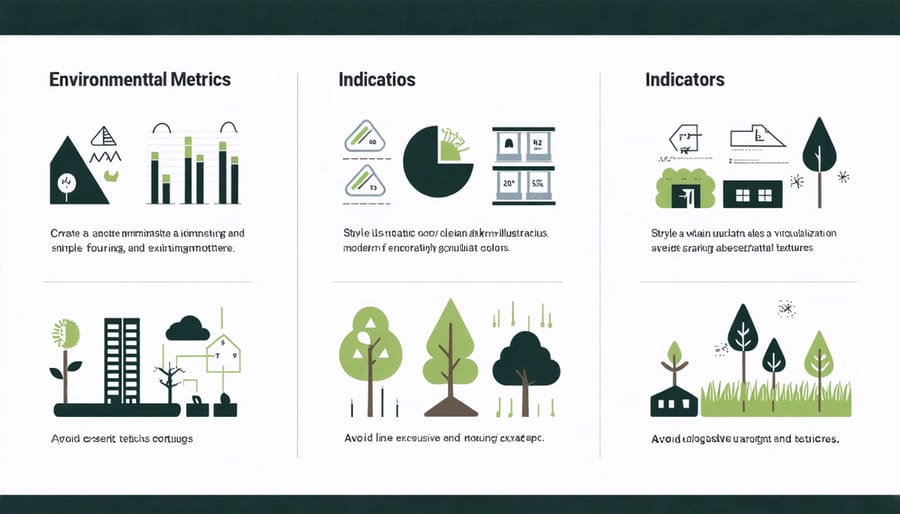
Financial Support and Resources
Grant Programs
The GEO-Fresh Organic program offers several funding streams to support Alberta farmers in their transition to organic farming. Farmers can access organic transition assistance through both provincial and federal channels, with grants ranging from $5,000 to $50,000 depending on project scope and farm size.
Primary funding opportunities include the Organic Transition Support Grant, which covers up to 75% of certification costs and soil testing expenses during the first three years of transition. The Environmental Stewardship Enhancement Program provides additional funding for implementing sustainable farming practices, offering up to $30,000 for water management systems and soil conservation projects.
To apply, farmers must submit a detailed transition plan, current farm assessment, and projected organic management strategy through the online portal. Applications are accepted quarterly, with submission deadlines on January 15, April 15, July 15, and October 15. The review process typically takes 4-6 weeks, and successful applicants receive funding within 30 days of approval.
Local agricultural extension offices provide free assistance with application preparation, and monthly workshops are available to help farmers navigate the process. Priority is given to projects demonstrating innovation in sustainable practices and strong community impact. First-time applicants are encouraged to attend an information session before submitting their applications.
Technical Support
Our dedicated technical support team stands ready to guide you through every step of your organic farming journey. Through our partnership with leading agricultural experts across Alberta, we provide comprehensive assistance tailored to your specific needs and growing conditions.
Participants in the GEO-O program receive access to our support hotline, staffed by certified organic farming specialists who can address concerns about certification requirements, pest management strategies, and soil health optimization. Our team offers both remote consultations and on-site visits to ensure you’re implementing best practices effectively.
We maintain an extensive digital resource library featuring detailed guides, seasonal planning tools, and region-specific farming protocols. Monthly webinars connect you with experienced organic farmers who share practical insights and solutions to common challenges faced in the Alberta climate.
For soil testing and analysis, our network of accredited laboratories provides preferential rates to program participants. The technical support package includes interpretation of test results and customized recommendations for soil amendments and crop rotation strategies.
Regular workshops held across Alberta regions offer hands-on training in organic farming techniques, certification documentation, and market access strategies. Our mentorship program pairs new organic farmers with established producers, creating valuable learning opportunities and lasting professional relationships within the organic farming community.
Remember, success in organic farming is a collaborative effort, and our technical support team is committed to helping you achieve your sustainable agriculture goals.
Success Stories from Alberta Farms

Prairie Grain Revolution
The Prairie Grain Revolution began when Sarah and Mike Thompson made the bold decision to transition their 800-hectare conventional grain farm near Red Deer to organic production in 2018. Following profitable organic farming strategies, they implemented a three-year transition plan that focused on soil health restoration and biodiversity.
During the first year, they divided their land into manageable sections, starting with 200 hectares. They introduced cover crops like clover and rye to naturally build soil nutrients and prevent erosion. The Thompsons also invested in specialized equipment for mechanical weed control, including a rotary hoe and inter-row cultivator.
By year three, their initial transition area was certified organic, producing high-quality wheat, oats, and pulses. Despite early challenges with weed management, their net profit increased by 35% compared to conventional farming, primarily due to premium organic prices and reduced input costs.
The Thompsons’ success has inspired fifteen neighboring farms to begin their organic transition journey. They now host regular field days and mentorship sessions, sharing their experiences and building a supportive community of organic grain producers in central Alberta.
From Conventional to Organic Cattle
The Andersen family farm, located just outside of Red Deer, Alberta, exemplifies a successful transition from conventional to organic cattle operations. In 2019, Dave and Sarah Andersen made the bold decision to convert their 200-head Black Angus operation to organic production, driven by growing market demand and their commitment to sustainable agriculture.
The transition process took 36 months, during which they systematically converted their 400 hectares of pastureland to meet organic certification requirements. They implemented rotational grazing practices and established diverse forage mixtures including alfalfa, timothy, and native grasses to ensure year-round feed availability.
Key to their success was maintaining detailed records and working closely with certification bodies. The Andersens found creative solutions for common challenges, such as partnering with neighbouring organic grain farmers for winter feed supplies and developing natural pest management strategies using beneficial insects and strategic pasture management.
Today, their operation commands premium prices for organic beef, with production costs approximately 15% lower than their conventional days. The improved soil health and biodiversity on their land have become evident, with native wildlife returning and water retention noticeably better in their pastures. The Andersens now mentor other Alberta ranchers interested in organic transition, sharing their experience and supporting the growing organic livestock community.
Implementation Steps
First Year Timeline
The first year of transitioning to organic farming through the GEO Fresh Organic program follows a structured timeline designed for success. Beginning in spring, farmers start with soil testing and developing their organic management plan. By early summer, participants implement approved organic practices while documenting all field activities and inputs.
Mid-summer brings the crucial period of mechanical weed control and cover crop establishment. Fall focuses on harvest planning and record-keeping systems setup, essential for organic certification. Winter months are dedicated to education through workshops and networking with experienced organic farmers in Alberta.
Key milestones include completing mandatory training modules, establishing buffer zones, and implementing crop rotation plans. Farmers can expect regular check-ins with program mentors and quarterly progress evaluations. The timeline allows for seasonal adjustments, recognizing Alberta’s unique growing conditions.
By year-end, participants should have their certification paperwork prepared, soil health improvements documented, and marketing strategies developed for their transition to organic production. Support continues throughout the year with monthly group sessions and one-on-one consultations as needed.
Common Challenges and Solutions
Making the transition to organic farming presents several common challenges, but successful Alberta farmers have developed effective solutions through experience. Weather variability remains a significant hurdle, particularly during the initial conversion period. Many farmers address this by implementing diverse crop rotations and maintaining flexible planting schedules that account for our unique prairie climate.
Weed management often poses the biggest initial challenge. Successful organic farmers in Alberta have found that combining mechanical cultivation with cover cropping provides effective control without synthetic herbicides. Some report that strategic crop selection and timing have reduced weed pressure by up to 60% within the first two years.
Soil fertility management during transition can be complex. Local farmers have had success using approved amendments like composted manure and green manures, while others partner with nearby livestock operations for natural fertilizer sources. Documentation and certification requirements may seem overwhelming at first, but organizing regular record-keeping routines from the start helps streamline the process.
Marketing organic products during the transition period requires planning. Many Alberta farmers maintain relationships with conventional buyers while gradually building connections in organic markets, ensuring stable income throughout the transition.
The GEO Fresh Organic program represents a significant opportunity for Alberta farmers to embrace sustainable agriculture while building profitable, future-proof operations. By transitioning to organic farming practices, you’re not just responding to growing market demands – you’re becoming part of a movement that’s reshaping Canadian agriculture for the better.
The benefits are clear: increased soil health, improved biodiversity, premium market prices, and access to specialized support networks. Plus, with the comprehensive mentorship and financial assistance available through the program, the transition process becomes more manageable and less daunting.
Take the next step in your farming journey by reaching out to our GEO Fresh Organic team today. Whether you’re ready to begin the transition or simply want to learn more, our experts are here to guide you through every stage of the process. Join the growing community of Alberta farmers who are successfully balancing environmental stewardship with profitable farming practices.
Contact our office to schedule a consultation and discover how the GEO Fresh Organic program can work for your farm. Together, we can build a more sustainable future for Canadian agriculture.

